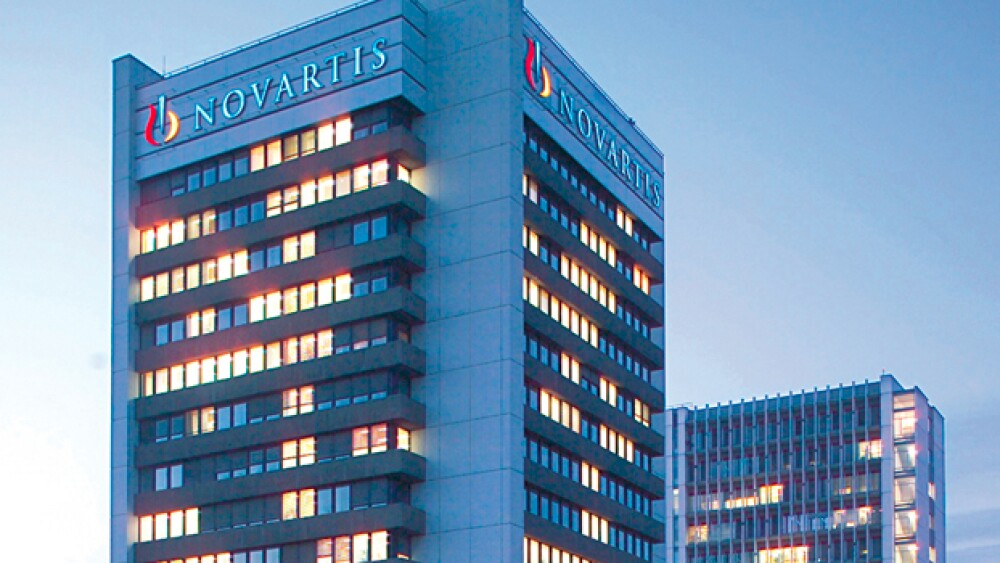Laekna, headquartered in Shanghai, China, signed a deal with Novartis Pharma AG for exclusive worldwide rights to two oral Novartis clinical-stage cancer drugs.
Laekna, headquartered in Shanghai, China, signed a deal with Novartis Pharma AG for exclusive worldwide rights to two oral Novartis clinical-stage cancer drugs.
The compounds are oral pan-Akt kinase inhibitors, afuresertib (ASB183) and uprosertib (UPB795). More than 10 clinical Phase I/II studies have been performed on the drugs for a variety of cancer indications, including ovarian and gastric cancer, multiple myeloma, melanoma, and others.
The Pten/PI3K/Akt signaling axis is an important pathway linked to cancer growth. Drugs that inhibit this pathway have been shown to be effective in slowing cancer growth. Laekna has “mapped out several clear registration paths for NDA approval potentially as the first in class medicine,” according to a company statement.
Novartis picked up the two drugs several years ago from GlaxoSmithKline when they swapped vaccines for cancer products.
As part of the deal, Novartis will acquire an equity stake in Laekna, in addition to upfront fees and development milestones. There are also royalties on future sales, although details have not been disclosed.
“Novartis is a global leader in oncology drug innovation,” said Chris Lu, founder and chief executive officer of Laekna, in a statement. “This is the second licensing agreement between Laekna and Novartis, adding to the previous licensing of CFG920 less than a year ago. We have demonstrated to Novartis that Laekna is a valuable collaborator with our strong commitment, experienced team and financing support from the top investment partners.”
CFG920 is a CYP17 inhibitor, an oral androgen inhibitor, for prostate cancer. Prior to the in-licensing, Novartis reported positive data from a proof-of-concept clinical trial of the compound in patients with metastatic castration-resistant prostate cancer.
BioPharmaDive writes, “The deal fits with the larger trend of big pharma divesting non-core assets in a push to focus more narrowly on core therapeutic areas. AstraZeneca, Pfizer and GlaxoSmithKline have all been particularly active in recent years. Novartis is doing much of the same, both in smaller deals like this one and its more sweeping plans to spin out its Alcon eye care business into a standalone device company. While Novartis considers oncology one of its key growth areas, the company has recently chosen to focus more on the immuno-oncology space and cell therapies in hopes of gaining an edge, while also advancing some targeted oncology therapies.”
On July 10, Novartis signed a deal with another Chinese company, Adlai Nortye Biopharma. Under that deal, except for a few rights Novartis is keeping, Adlai Nortye picked up exclusive development and commercialization rights to buparlisib. Buparlisib, or BKM120, is an oral pan-PI3K inhibitor targeting all class 1 PI3K isoforms and is active in hematologic cancers and solid tumors. It has shown efficacy in a combination with paclitaxel in head and neck squamous cell carcinoma (HNSCC) and received Fast Track Designation from the U.S. Food and Drug Administration (FDA).
“Buparlisib has been extensively profiled in breast cancer and other tumor types,” said Carsten Lu, chief executive officer of Adlai Nortye in a statement. “Buparlisib when combined with other therapies has shown impressive anti-cancer efficacy in HNSCC. It has very good market prospects when combined with paclitaxel, and we are planning to carry out clinical trials of combination of buparlisib and immune check point inhibitor treatment.”
No financial details were divulged for that deal, either.





